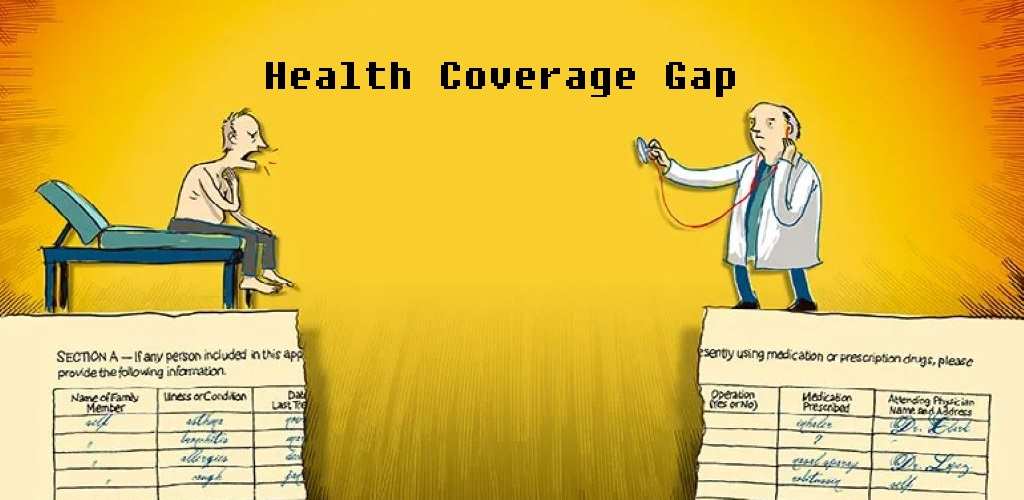No matter whether you own a house or not, you cannot overlook the importance of a health insurance policy. Having a health insurance policy can bring a multitude of benefits including financial protection and tax advantages. Health insurance not only helps cover expenses during medical emergencies but also offers significant tax benefits. Under the current tax regulations, the premiums you pay for your health insurance can help you claim tax deductions under Section 80D of the Income Tax Act, of 1961. These deductions can be claimed each financial year when you file your Income Tax Return (ITR) which reduces your taxable income and thus, lowers your tax liability.
If you, however, have a multi-year health insurance plan, the process of claiming tax deductions changes. Unlike annual plans, multi-year health insurance plans provide coverage for several years in one go, which ultimately eliminates the need to renew the policy or pay premiums every year. Because of the extended coverage, the way you claim tax deductions for the premiums paid on these plans is different. Instead of claiming the entire premium in one year, the total premium paid is divided by the number of years of coverage, and you claim a portion of the premium each year.
Let’s explore the tax benefits of multi-year health insurance plans.
Understanding Tax Benefits in Health Insurance Plans
Under Section 80D of the Income Tax Act, individuals can claim tax benefits on the premiums paid towards their health insurance plans during the specific year when filing their annual income tax returns. This provision allows taxpayers to reduce their taxable income, thereby lowering their tax liability. Apart from Section 80D, taxpayers can also avail tax benefits under Section 80C for various investments and expenses.
However, the tax benefits under Section 80D specifically apply to health insurance plans. This means that individuals can claim deductions on premiums paid towards health insurance covering themselves, their family, and dependent parents. Unlike Section 80C, which covers a wide range of investments and expenses, Section 80D is focused solely on health insurance.
According to the Income Tax Act, taxpayers can claim deductions on premiums paid for themselves, their family (including spouse, children, and dependent parents), and separate health insurance policies for parents if they are senior citizens. The maximum deduction allowed is Rs. 1,00,000 per year, which covers premiums paid for self (if a senior citizen) and family, as well as premiums paid for separate health insurance policies for senior citizen parents.
Understanding the Tax Exemptions with Deduction Limit on Health Insurance
Here are the tax exemptions on health insurance.
| Category | Deduction Limit | Total Deductions Under Section 80D |
| The first category includes the insured members aged below 60 years. | Speaking of the deduction limit, for self, spouse, and children- Rs. 25000 For Parents- Rs 25,000 | Rs. 50,000 |
| It includes insured family members( including self, spouse, and children) under 60 years and parents above 60 years. | Speaking of the deduction limit, for self, spouse, and children- Rs. 25000 For Parents- Rs 50,000 | Rs. 75,000 |
| It includes members including parents above 60 years. | For self, spouse, and children-Rs 50,000 For Parents- Rs 50,000 | Rs. 1,00,000 |
What are the Key Benefits of Multi-Year Health Insurance Plans?
Listed below are the key benefits of Multi-Year Health Insurance Plans.
- No Need for Yearly Renewal
One of the key benefits of multi-year health insurance plans is that you don’t need to run into renewing your policy every year. Once you pay the premium, your coverage remains intact for multiple years, which means you’ll get peace of mind and save you time and effort.
- Locked Premium
Another major benefit of a multi-year health insurance plan is that purchasing a multi-year plan often means locking in your premium for the duration of the policy. It means you won’t be affected by premium increases during the covered years. If there are any premium hikes, they typically only come into effect at the time of policy renewal, which provides stability and predictability in your insurance expenses.
- Savings
There is no denying the fact that many insurance providers offer savings incentives for multi-year plans. It could come in the form of discounted premiums or other special offers, which will help you save money in the long run. All you need to do is simply take advantage of these savings opportunities, you can reduce the overall cost of your health insurance coverage.
- Yearly Tax Exemption
One of the major tax benefits is that despite paying the premium upfront, you can still claim tax exemptions each year. The total premium paid is divided by the number of years covered by the plan, and you can claim a portion of the premium as a tax deduction annually. For example, if you pay ₹30,000 for a three-year insurance plan, you can claim Rs. 10,000 as a tax exemption each year.
- Tax Savings Option
Last but not least, you can pay the premium upfront for multiple years, you not only secure your coverage but also unlock tax-savings benefits. Remember that the premiums paid towards your multi-year health insurance plan are eligible for tax deductions under Section 80D of the Income Tax Act, just like annual plans.
List of Documents Needed to Claim Medical Insurance Tax Benefits
If you are looking for documents you will need to claim medical insurance tax benefits under Section 80D, you’ll need to provide certain documents as proof.
- Receipt of Payment
The first and foremost document that you should have is the full receipt for the payment of the premium. This receipt should display details such as the date of payment, the amount paid, and the mode of payment. The receipt obtained from the insurer’s website, whether downloaded online or provided physically, serves as valid proof.
- Validity Date
The date on the premium receipt should fall within the financial year for which you are computing taxes. Ensure that the premium payment date aligns with the relevant financial year to claim the deduction correctly.
- Payment Mode
One of the key documents that you should include to claim your medical insurance tax benefits is that it always indicates the mode of payment used for the premium, whether through online transfer, cheque, or any other accepted method. Cash receipts for premium payments are typically not accepted as valid proof for tax deductions.
- Agent Receipts
Last but not least, temporary receipts issued by agents or intermediaries are generally not acceptable for claiming tax deductions. Ensure that you have the official premium receipt issued by the insurer or its authorized channels.
Frequently Asked Questions
Listed below are the frequently asked questions related to the tax benefits on the multi-year health insurance plans.
Yes! If you have health insurance or health add-ons with your life insurance, you can get tax deductions under Section 80D of the Income Tax Act.
If you already have a medical condition or are receiving treatment when you buy the policy, it might affect your premium.
Who can get tax benefits for health insurance under Section 80D? You can claim tax deductions for health insurance premiums if you are an individual, a Hindu Undivided Family (HUF), or a Non-Resident Indian (NRI).
If you’re over 60, you can claim up to Rs. 50,000 as a tax deduction for health insurance premiums. This includes a preventive health checkup limit of Rs. 7,000.
If you are looking to maximize tax benefits, you should consider paying the premium for health insurance that covers senior citizen parents. You can claim up to Rs. 1 lakh under Section 80D, including premiums for yourself, your family, and senior citizen parents.








